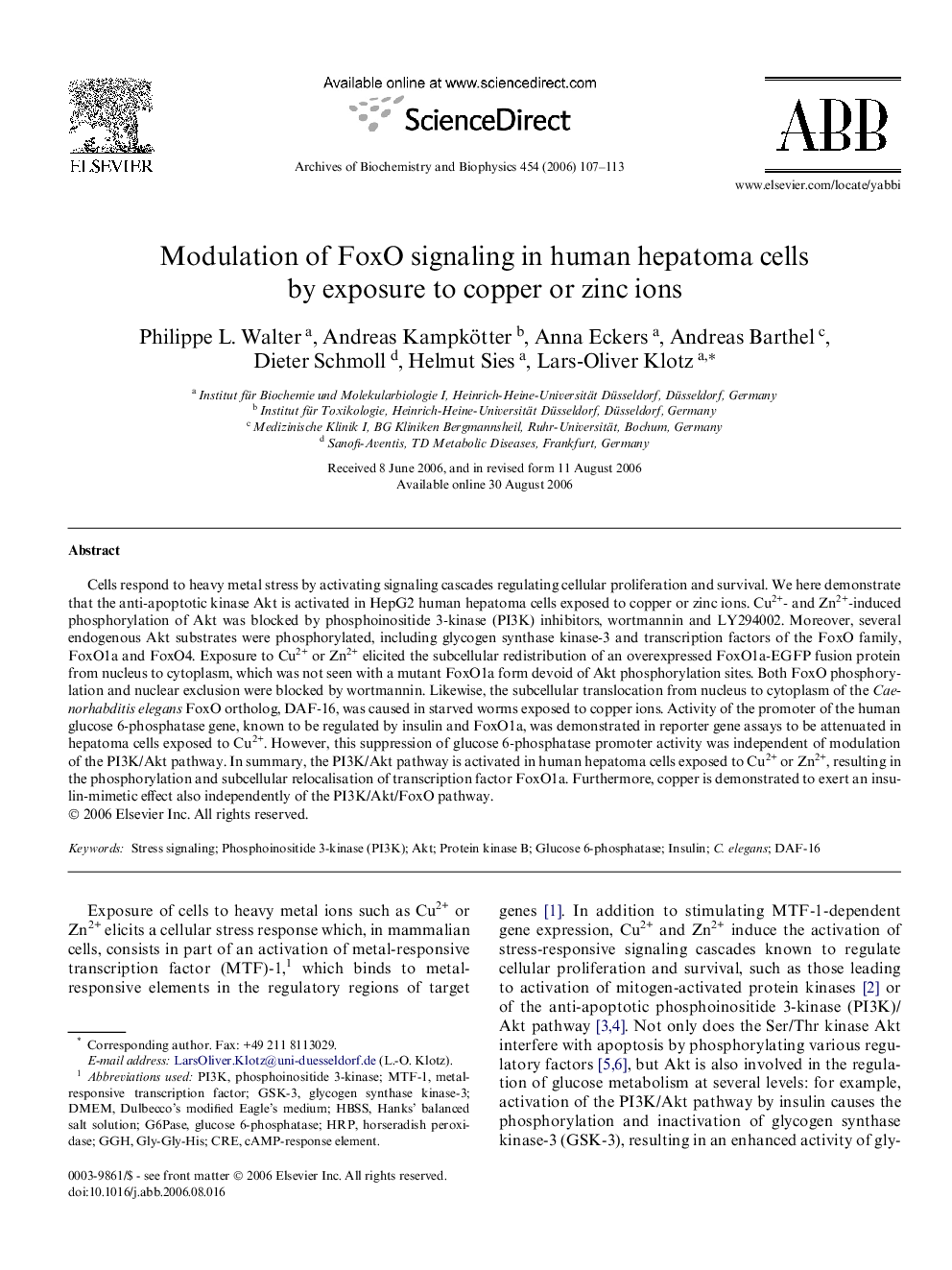| Article ID | Journal | Published Year | Pages | File Type |
|---|---|---|---|---|
| 1927448 | Archives of Biochemistry and Biophysics | 2006 | 7 Pages |
Cells respond to heavy metal stress by activating signaling cascades regulating cellular proliferation and survival. We here demonstrate that the anti-apoptotic kinase Akt is activated in HepG2 human hepatoma cells exposed to copper or zinc ions. Cu2+- and Zn2+-induced phosphorylation of Akt was blocked by phosphoinositide 3-kinase (PI3K) inhibitors, wortmannin and LY294002. Moreover, several endogenous Akt substrates were phosphorylated, including glycogen synthase kinase-3 and transcription factors of the FoxO family, FoxO1a and FoxO4. Exposure to Cu2+ or Zn2+ elicited the subcellular redistribution of an overexpressed FoxO1a-EGFP fusion protein from nucleus to cytoplasm, which was not seen with a mutant FoxO1a form devoid of Akt phosphorylation sites. Both FoxO phosphorylation and nuclear exclusion were blocked by wortmannin. Likewise, the subcellular translocation from nucleus to cytoplasm of the Caenorhabditis elegans FoxO ortholog, DAF-16, was caused in starved worms exposed to copper ions. Activity of the promoter of the human glucose 6-phosphatase gene, known to be regulated by insulin and FoxO1a, was demonstrated in reporter gene assays to be attenuated in hepatoma cells exposed to Cu2+. However, this suppression of glucose 6-phosphatase promoter activity was independent of modulation of the PI3K/Akt pathway. In summary, the PI3K/Akt pathway is activated in human hepatoma cells exposed to Cu2+ or Zn2+, resulting in the phosphorylation and subcellular relocalisation of transcription factor FoxO1a. Furthermore, copper is demonstrated to exert an insulin-mimetic effect also independently of the PI3K/Akt/FoxO pathway.
